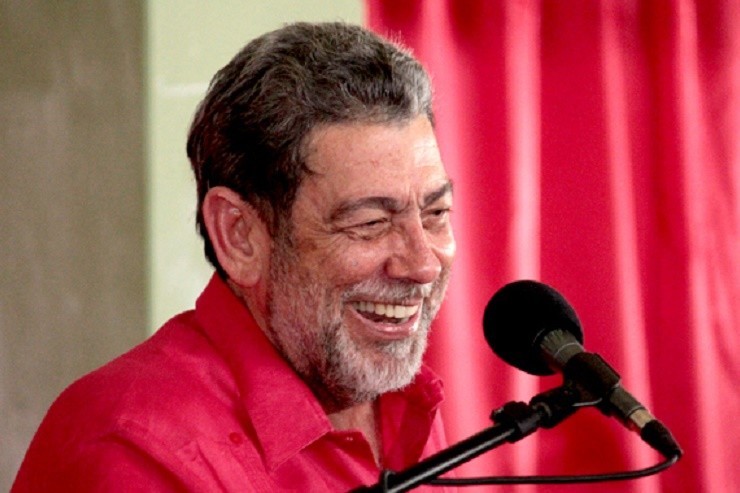Introduction
This Sunday, March 28, 2021 would mark 20 years since the people of this country elected the Unity Labour Party (ULP) to govern the affairs of state. On this day in 2001, Vincentians voted solidly to elect the Ralph Gonsalves ULP, rejecting any further stagnation of this country under a hopeless and stale New Democratic Party (NDP) that had clearly ran out of ideas and lost its way. The truth is, this victory was a few years in coming, as back in 1998, the overwhelming majority of Vincentians had voted for the ULP, however, the party was unable to assume government as we were only able to secure 7 of the 15 seats in parliament. What stood out in the period between 1998 and 2001 was the way the ULP went about its business in opposition; raising the issues, holding the government accountable, representing the interest of Vincentians. Twenty years later, the ULP is still the party of choice of Vincentians as was evident in November 2020 General Elections, when the voters re-elected this great party to a 5th consecutive term in government. This historic feat of winning 5 consecutive General Elections is unmatched not just in this country, but in post-independent CARICOM, making it all the more remarkable. Results like these are not attained through luck, but they are the fruits of strong leadership, good governance, and people-centred policies developed and implemented to improve the lives of Vincentians. Let’s briefly examine some of the policies implemented by the ULP over the last 20 years that have become quite popular because of the positive impact they have had on Vincentian lives.
Land reform
This policy was and still remains a critical pillar in the governments overall agenda of reducing poverty in this country, through the distribution of land. One very important wrong that was righted, and is in some ways connected to this policy, was the paying of severance to hundreds of estate workers owed for many years. The NDP administration after 17 years in government never made this a priority, even though they were aware of this injustice done to many estate workers. Once in government, the ULP led by Comrade Ralph acted swiftly to right the historic wrong and made those long overdue severance payments to the former estate workers in places like Fitz Hughes and Orange Hill.
Following on the heels of paying severance to workers, the government initiated the policy of land distribution that gave the opportunity of land ownership to the poor and working class of this country. All across Saint Vincent and the Grenadines, families that lived on government lands for many years without title, were offered those lands for as low as 10 cents per square foot. This was referred to as “turning dead capital to live capital” as for the first time, these proud individuals were in possession of title to the lands they had lived on for decades in some instances but were unable to claim rightful ownership. Having title now allowed them to be able to approach lending institutions to access financing for to undertake home renovations, start new businesses or pay for their children’s university education. The government continues this policy and still regularly distributes land across the country at below market value to Vincentians who would otherwise not be able to own land.
This must be contrasted with what occurred under the New Democratic Party, where government ministers, close friends and party hacks were the ones offered prime lands in places such as Bequia and Canouan at 50 cents and $1 per square foot. No such thing has occurred under this ULP.
Poverty reduction
While land reform remains a significant pillar in the ULP administration’s property reduction policy, many other important elements were implemented over the last 20 years. From the very onset of the administration, it was clear that the elderly and the vulnerable in our society, who had been forgotten by the previous administration, would receive focused attention intended to improve their living conditions. It must be mentioned that upon taking office, the poverty situation in this country based on a poverty assessment report of 1998 indicated a 40% poverty rate with an indigence rate of 26%. The government set about to address this situation immediately.
One of the areas for immediate attention, where it was painstakingly clear that the government’s social program was inadequate, was the $60 (increased once in 17 years under the NDP) given as a monthly public assistance to the elderly. In addressing this, the ULP administration increased the assistance to $120, in the first instance.
Since that time, the public assistance had been increased another 4 times, to where it’s now approximately 5 times what it was in 2001. The ULP administration also expanded the public assistance program to accommodate students in need of transportation and other forms of assistance especially in cases where the students are orphans.
The school feeding program has been significantly improved and now feeds thousands of our nation’s students with nutritious meals for $1 per day. The accompanying Zero Hunger Trust Fund maintains an Adopt a Classroom Programme, through which students at 12 primary schools nationwide receive focused support in addition to delivering nutritional support for approximately 700 Vincentians. Tax reform measures, such as lowering the personal income tax rates, while increasing the maximum taxable threshold for workers all resulted in more disposable income for workers. When the significant increases in salaries for public servants, nurses, teachers and police, that amount to an average of 32% over the 20 year period are factored in, the true extent of the improvement in income for Vincentians can be realised. By 2008, the poverty rate had been reduced to 33% but more importantly the indigence rate was reduced to 3%. Marvellous work by the ULP government.
Conclusion
Next week, we will continue the celebration of our 20th year in government with an examination of some other policy initiatives by the ULP government that continues to improve the lives of Vincentian.





